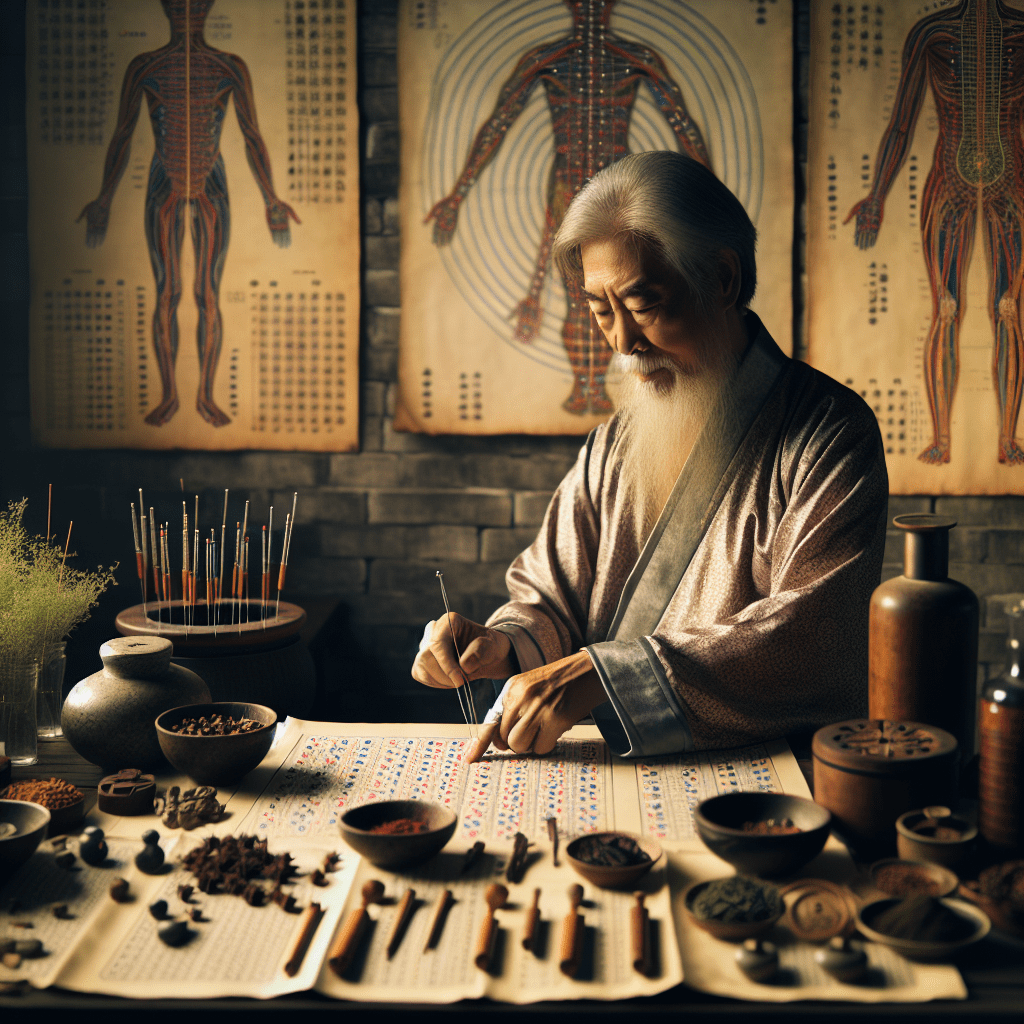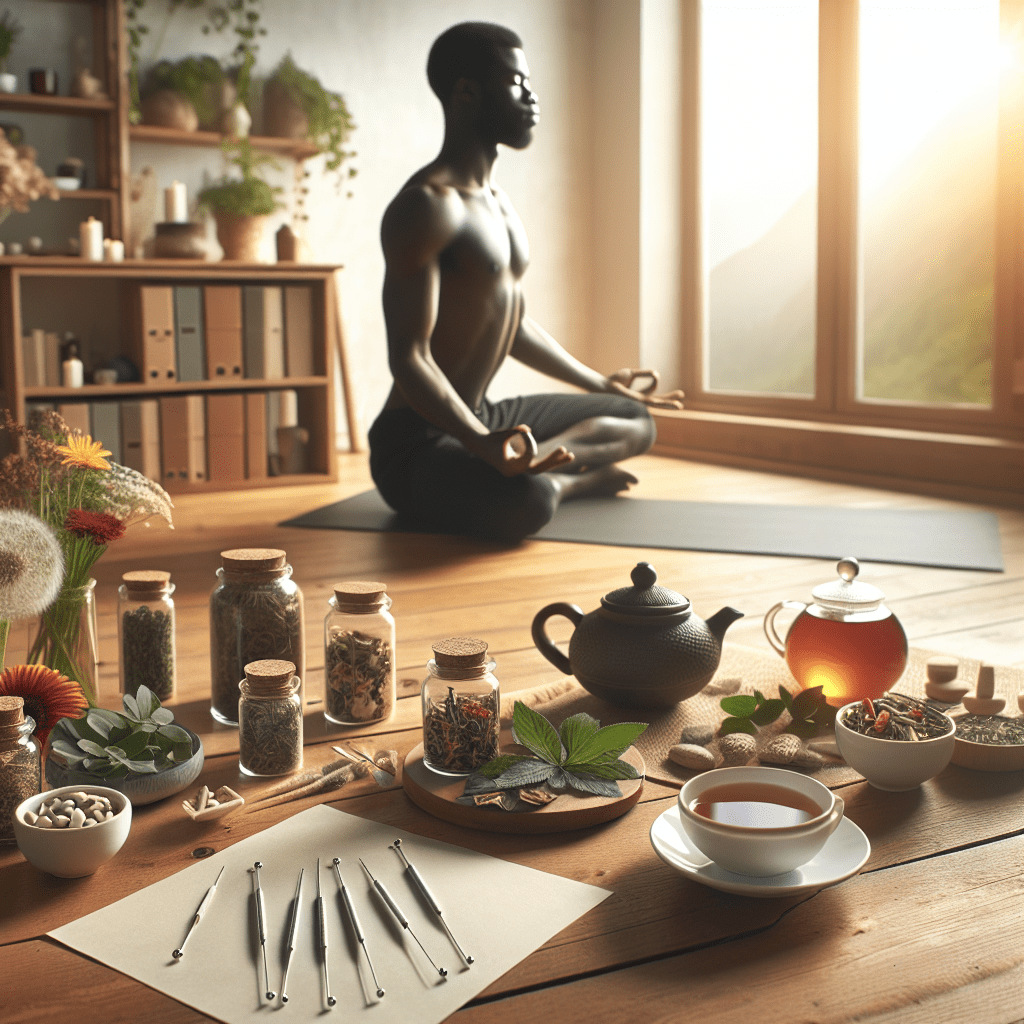Ancient healing practices are experiencing a modern renaissance as people seek more holistic approaches to health and wellness. What might your body be secretly craving?
In a world dominated by quick-fix medications and rushed doctor appointments, more and more people are turning their gaze toward the wisdom of the past. Alternative medicine types, once considered fringe practices, are now stepping into the spotlight as health-conscious individuals seek more natural, holistic approaches to wellness.
There’s something deeply appealing about healing methods that have stood the test of time—practices that connected our ancestors to the rhythms of nature long before pharmaceutical companies existed. Whether it’s the strategic placement of acupuncture needles or the earthy aroma of medicinal herbs, these ancient healing traditions offer something many of us crave: a sense of connection to something larger than ourselves and a return to time-honored wisdom.
The surge in interest isn’t just a passing trend. According to recent studies, nearly 40% of Americans now incorporate some form of alternative medicine into their health routines. This growing movement reflects a collective desire to take a more active role in our wellbeing, moving beyond treating symptoms to nurturing whole-body health.
Understanding Complementary vs. Alternative Medicine
Many people use the terms “alternative” and “complementary” interchangeably, but understanding the difference helps navigate these approaches more effectively.
Before diving deeper into specific alternative medicine types, it’s important to understand the distinction between “complementary” and “alternative” approaches. Though often used interchangeably, they represent different relationships with conventional medicine.
Complementary medicine works alongside conventional treatments—think of massage therapy to help manage pain during cancer treatment, or meditation practices to reduce stress while taking prescribed medications for anxiety. These practices don’t replace standard medical care but enhance it.
Alternative medicine, on the other hand, refers to practices used instead of conventional treatments. Someone might choose herbal remedies over prescription medications or acupuncture instead of surgery for certain conditions.
Many people actually practice what experts call “integrative medicine”—thoughtfully combining the best of both worlds. Dr. Andrew Weil, a pioneer in integrative medicine, explains: “Integrative medicine neither rejects conventional medicine nor accepts alternative therapies uncritically.”
Some of the most popular alternative medicine types include:
- Acupuncture: An ancient Chinese practice using thin needles to balance the body’s energy flow
- Herbal medicine: Using plant-based remedies to treat various conditions
- Massage therapy: Manipulating muscles and soft tissues to improve health
- Homeopathy: Treating ailments with highly diluted substances
- Chiropractic care: Focusing on spinal alignment to influence overall health
- Ayurveda: India’s traditional medicine system balancing mind, body, and spirit
Each of these alternative medicine types offers unique approaches to healing that many conventional treatments don’t address. They often focus on the whole person rather than just targeting isolated symptoms.
Ancient Healing Methods and Their Benefits
These time-tested healing traditions have survived for millennia because they offer effective approaches to wellness that address the whole person, not just isolated symptoms.
### Acupuncture: Needles with Purpose
Dating back over 2,500 years, acupuncture remains one of the most researched alternative medicine types. This Traditional Chinese Medicine (TCM) practice involves inserting thin needles at specific points along the body’s meridians—pathways through which qi (vital energy) flows.
While Western science may not fully embrace the concept of qi, numerous studies support acupuncture’s effectiveness, particularly for pain management. A meta-analysis published in the Journal of Pain found acupuncture significantly effective for chronic pain conditions including back pain, neck pain, osteoarthritis, and headaches.
Lisa Chen, who suffered from debilitating migraines for years, shares: “After trying countless medications with terrible side effects, acupuncture was the first treatment that gave me relief without making me feel foggy or nauseous. Three months in, my migraine frequency decreased by 70%.”
Herbal Medicine: Nature’s Pharmacy
Herbal medicine represents one of the oldest and most widespread alternative medicine types. Every culture around the world has developed its own tradition of using plants for healing—from Chinese herbs to Native American botanicals to European folk remedies.
These natural approaches don’t just mask symptoms but often work to address underlying imbalances. For instance, adaptogenic herbs like ashwagandha and rhodiola help the body respond to stress more effectively rather than simply sedating you like some pharmaceutical options might.
The efficacy of certain herbs is well-documented. For example, numerous studies confirm that ginger effectively reduces nausea, turmeric has powerful anti-inflammatory properties, and St. John’s Wort can be effective for mild to moderate depression.
Massage Therapy: Healing Touch
Massage therapy stands among the most accepted alternative medicine types, perhaps because its benefits are so immediately tangible. Beyond feeling good, therapeutic massage has been shown to reduce stress hormones, decrease anxiety, improve sleep quality, and enhance immune function.
Different massage traditions offer varied approaches. Swedish massage uses long, flowing strokes to promote relaxation, while deep tissue work targets chronic muscle tension. Thai massage incorporates stretching and joint mobilization, while shiatsu applies pressure to specific points similar to acupuncture but without needles.
Research published in Science Translational Medicine found that massage therapy reduces inflammation and promotes mitochondrial biogenesis—literally helping your cells produce more energy—after exercise.
At HerbalsZen, we recognize the profound wisdom in these ancient healing practices. Our EASTCHI AI system uniquely bridges these time-tested healing philosophies with modern technology, analyzing your constitutional type according to Five Element Theory to provide personalized wellness recommendations. Just as traditional healers would customize treatments based on individual needs, EASTCHI AI tailors guidance specifically to your body’s unique requirements.
Evidence and Efficacy: What Science Says
While personal testimonials are powerful, scientific research provides important validation for alternative medicine practices. Here’s what the evidence tells us about some popular approaches.
When exploring alternative medicine types, it’s important to approach them with both an open mind and healthy skepticism. While some practices have substantial research supporting their benefits, others have less scientific backing.
Acupuncture has perhaps the strongest evidence base among alternative medicine types. The National Institutes of Health acknowledges its effectiveness for conditions including chronic pain, migraine prevention, and chemotherapy-induced nausea. A 2018 review in The Journal of Pain found acupuncture’s effects persist over time, suggesting it’s not merely a placebo effect.
Herbal medicine presents a more complex picture. Certain herbs have undergone rigorous testing—for example, multiple studies confirm that ginkgo biloba improves cognitive function in some patients, while evening primrose oil shows promise for eczema treatment. However, many herbs haven’t been studied as thoroughly, and concerns about standardization and drug interactions exist.
Massage therapy has solid evidence supporting its benefits for stress reduction, pain management, and improved sleep quality. A systematic review in the Journal of Clinical Psychiatry found massage therapy significantly reduced symptoms of anxiety and depression.
It’s worth noting that just because something lacks extensive clinical research doesn’t necessarily mean it’s ineffective. Many alternative medicine types have limited studies due to funding challenges—pharmaceutical companies have little incentive to fund research on non-patentable natural remedies.
Dr. Josephine Briggs, former director of the National Center for Complementary and Integrative Health, explains: “We need to avoid both uncritical acceptance and uninformed skepticism when evaluating these practices.”
Before beginning any alternative therapy, consider these guidelines:
- Consult with healthcare providers about incorporating alternative medicine types into your health plan
- Research the evidence behind specific practices
- Choose qualified, certified practitioners
- Maintain realistic expectations
- Consider alternatives as complements to, not replacements for, necessary conventional care
Public Perception and Current Trends
Alternative medicine types have experienced a remarkable shift in public perception over recent decades. What was once viewed with widespread skepticism is now increasingly mainstream. A survey by the National Center for Health Statistics found that Americans spend over $30 billion annually on alternative medicine, demonstrating significant consumer confidence.
This growing interest reflects several cultural shifts:
First, there’s increasing dissatisfaction with aspects of conventional healthcare—particularly its focus on disease treatment rather than prevention, limited appointment times, and medication side effects. Many people feel standard healthcare doesn’t adequately address the whole person.
Second, greater global connectivity has exposed more Westerners to healing traditions from around the world. Practices like yoga, meditation, and TCM have become accessible to people far from their origins.
Third, the wellness movement has normalized the pursuit of optimal health rather than merely avoiding illness. Alternative medicine types often align well with this proactive approach.
The integration of technology with ancient wisdom represents an exciting frontier. HerbalsZen’s EASTCHI AI exemplifies this trend, using artificial intelligence to make Eastern medical wisdom more accessible and personalized. By analyzing individual constitutions through the lens of Five Element Theory, EASTCHI AI provides tailored nutrition and lifestyle recommendations that honor traditional principles while meeting modern needs.
The medical establishment is taking notice too. Many prestigious hospitals now have integrative medicine departments, and medical schools increasingly include courses on alternative approaches. The Cleveland Clinic’s Center for Integrative & Lifestyle Medicine combines conventional care with services including acupuncture, herbal medicine, and mind-body practices.
Dr. Rachel Goldman, integrative medicine specialist, notes: “What we’re seeing isn’t alternative medicine replacing conventional care, but rather a more thoughtful integration that takes the best from all traditions to create more comprehensive healing approaches.”
Finding Your Body’s Secret Craving
The journey to discover your ideal healing approach is deeply personal. Listen to your body’s signals and trust your intuition as you explore these ancient traditions.
As we’ve explored various alternative medicine types, you might wonder which approach your body is secretly craving. The answer likely depends on your individual constitution, current health challenges, and personal preferences.
If you’re dealing with chronic pain or specific physical ailments, acupuncture might be calling your name. For those experiencing stress, anxiety, or emotional imbalances, herbal medicine might offer gentle support. If physical tension or insomnia plague you, massage therapy could provide the relief you seek.
The beauty of Eastern healing philosophies—like those integrated into EASTCHI AI—is their recognition that each person has unique needs. Rather than a one-size-fits-all approach, these traditions offer personalized paths to wellness based on your specific constitution and current imbalances.
When beginning your exploration of alternative medicine types, start by listening to your intuition. What draws you? What resonates? Then combine this inner wisdom with research and professional guidance to create a balanced wellness strategy that honors both ancient wisdom and modern understanding.
Remember that wellness isn’t about choosing between conventional and alternative approaches—it’s about creating an integrated plan that addresses your health holistically. The goal isn’t to reject modern medicine but to complement it with practices that nurture your whole being—body, mind, and spirit.
At HerbalsZen, we’re committed to supporting your journey through the world of alternative medicine types with informed guidance. Our EASTCHI AI system embodies our philosophy that the wisdom of Eastern healing traditions deserves a place in modern wellness—not as a replacement for necessary conventional care, but as a complement that honors the complex, interconnected nature of human health.
By bridging ancient wisdom with modern technology, we hope to help you discover exactly what your body has been secretly craving all along—a balanced approach to wellness that honors your unique needs and draws from the best of all healing traditions.



